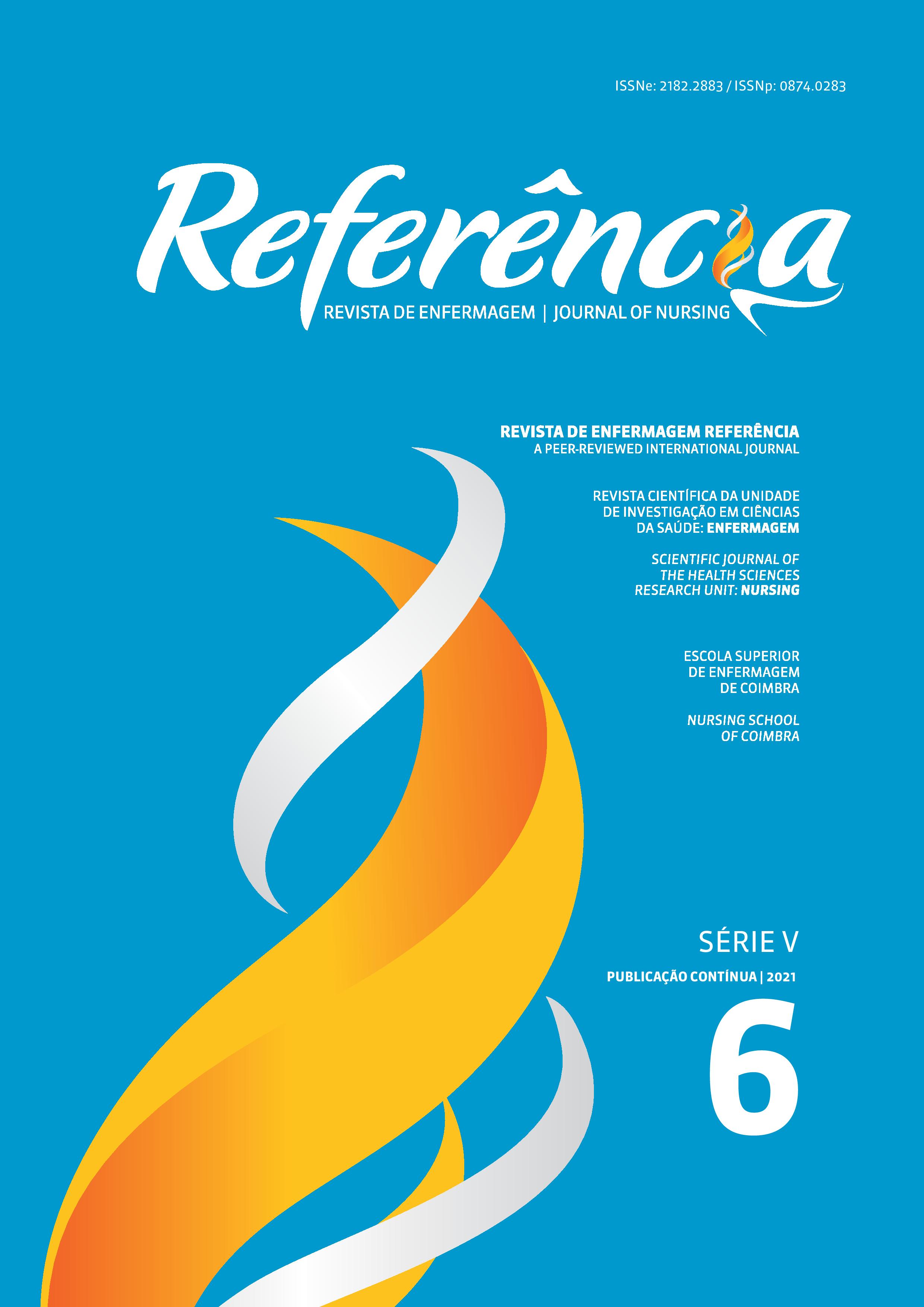Intervención educativa de enfermería dirigida a promover comportamientos saludables en supervivientes de cáncer
DOI:
https://doi.org/10.12707/RV20090Palabras clave:
enfermería, enfermería, práctica, enfermería oncológica, estilo de vida saludableResumen
Marco contextual: El cáncer requiere un enfoque profesional concertado que vaya más allá del diagnóstico y el tratamiento. Los comportamientos de promoción de la salud después de la enfermedad son un desafío para los enfermeros y muy relevantes para los supervivientes.
Objetivos: Explorar los aspectos centrales que se deben integrar en una intervención educativa de enfermería para promover comportamientos saludables en los supervivientes de cáncer.
Metodología: Se realizó un estudio exploratorio y cualitativo con un grupo de 9 expertos. Se utilizó el grupo focal como estrategia de recogida de datos.
Resultados: Los resultados proponen la construcción de una intervención a través de la negociación y la contractualización, que abarque varios ámbitos, promueva la participación en comportamientos saludables y sensibilice sobre los comportamientos de riesgo. Se sugiere comenzar temprano, preferiblemente en el hospital.
Conclusión: La intervención de enfermería debe centrarse en un proceso de toma de decisiones compartido, considerar las preferencias de los supervivientes, la motivación y al miembro de la familia como catalizadores del cambio, permitir la expresión privada de las emociones y, sobre todo, anticiparse a las necesidades de los supervivientes.
Descargas
Citas
American Cancer Society. (2019). Cancer treatment and survivorship facts and figures 2019-2021. Atlanta, GA: Author. https://www.cancer.org/content/dam/cancer-org/research/cancer-facts-and-statistics/cancer-treatment-and-survivorship-facts-and-figures/cancer-treatment-and-survivorship-facts-and-figures-2019-2021.pdf
Bosch-Capblanch, X., Abba, K., Prictor, M., & Garner, P. (2007). Contracts between patients and healthcare practitioners for improving patients’ adherence to treatment, prevention and health promotion activities. Cochrane Database of Systematic Reviews, 18(2), CD004808. https://doi.org/10.1002/14651858.CD004808.pub3
Cooley, M., Finn, K., Wang, Q., Roper, K., Morones, S., Shi, L., & Hayman, L. (2013). Health behaviors, readiness to change, and interest in health promotion programs among smokers with lung cancer and their family members: A pilot study. Journal of Cancer Nursing, 36(2), 145–154. https://europepmc.org/article/pmc/4729371
Corbett, T., Cheetham, T., Muller, A., Slodkowska‐Barabasz, J., Wilde, L., Krusche, A., Richardson, A., Foster, C., Watson, E., Little, P., Yardley, L., & Bradbury, K. (2018). Exploring cancer survivors’ views of health behaviour change: Where do you start, where do you stop with everything? Psycho-Oncology, 27(7), 1816-1824. https://dx.doi.org/10.1002/pon.4732
Coward, D. (2006). Supporting health promotion in adults with cancer. Family & Community Health, 29(Supp.), 52S–60S. https://pubmed.ncbi.nlm.nih.gov/16344637/
Eakin, E., Hayes, S., Haas, M., Reeves, M., Vardy, J., Boyle, F., & Hiller, J. (2015). Healthy living after cancer: A dissemination and implementation study evaluating a telephone-delivered healthy lifestyle program for cancer survivors. BMC Cancer, 15(1), 992–992.https://doi.org/10.1186/s12885-015-2003-5
Ebu, N.I., Amissah-Essel, S., Asiedu, C., Akaba S., & Pereko, K. A. (2019). Impact of health education intervention on knowledge and perception of cervical cancer and screening for women in Ghana. BMC Public Health, 19(1), 1505. https://doi.org/10.1186/s12889-019-7867-x
Edgington, A., & Morgan, M. (2011). Looking beyond recurrence: Comorbidities in cancer survivors. Clinical Journal of Oncology Nursing, 15(1), 3–12. https://cjon.ons.org/cjon/15/1/looking-beyond-recurrence-comorbidities-cancer-survivors
Feuerstein, M. (2007). Defining cancer survivorship. Journal of Cancer Survivorship: Research and Practice, 1(1), 5-7. https://doi.org/10.1007/s11764-006-0002-x
Frazelle, M., & Friend, P. (2016). Optimizing the teachable moment for health promotion for cancer survivors and their families. Journal of the Advanced Practitioner in Oncology, 7(4), 422–433. http://dx.doi.org/10.6004/jadpro.2016.7.4.5
Geller, B., Vacek, P., Flynn, B., Lord, K., & Cranmer, D. (2014). What are cancer survivors’ needs and how well are they being met? Journal of Family Practice, 63(10), E7-E16. https://www.ncbi.nlm.nih.gov/pubmed/25343160
Hewitt, M., Greenfield, S., & Stovall, E. (2006). From cancer patients to cancer survivor: Lost in transition. https://www.nap.edu/catalog/11468/from-cancer-patient-to-cancer-survivor-lost-intransition
Krueger, R., & Casey, M. (2014). Focus groups: A practical guide for applied research (5a ed.). SAGE.
Meleis, A. (2010). Transitions Theory: Middle-range and situation-specific theories in nursing research and practice. Springer.
Meraviglia, M., Stuifbergen, A., Morgan, S., & Parsons, D. (2015). Low-Income cancer survivors’ use of health-promoting behaviors. Medsurg Nursing: Official Journal Of The Academy Of Medical-Surgical Nurses, 24(2), 101-106. https://doi.org/10.1097/NUR.0b013e3182157786
Park, B., Kong, S., Kim, J., Kim, Y., Park, I., Jung, S., & Lee, E. (2015). Health behaviors of cancer survivors in nationwide cross-sectional survey in Korea: Higher alcohol drinking, lower smoking, and physical inactivity pattern in survivors with higher household income. Medicine, 94(31), 1214. https://pubmed.ncbi.nlm.nih.gov/26252280/
Pender, N., Murdaugh, C., & Parsons, M. (2015). Health promotion in nursing practice (7th ed.). Pearson Education.
Seifert, C., Chapman, L., Hart, J., & Perez, P. (2012) Enhancing intrinsic motivation in health promotion and wellness. American Journal of Health Promotion, 26(3), 1-12. http://journals.sagepub.com/doi/abs/10.4278/ajhp.26.3.tahp?url_ver=Z39.88-2003&rfr_id=ori:rid:crossref.org&rfr_dat=cr_pub%3dpubmed
Sisler, J., Chaput, G., Sussman, J., & Ozokwelu, E. (2016). Follow-up after treatment for breast cancer: Practical guide to survivorship care for family physicians. Canadian Family Physician, 62(10), 805-811. https://www.cfp.ca/content/62/10/805.long
Tollosa, D., Tavener, M., Hure, A., & James, E. (2019). Compliance with multiple health behaviour recommendations: A cross-sectional comparison between female cancer survivors and those with no cancer history. International Journal of Environmental Research Public Health, 16(8), 1345. https://www.ncbi.nlm.nih.gov/pmc/articles/PMC6517956/






